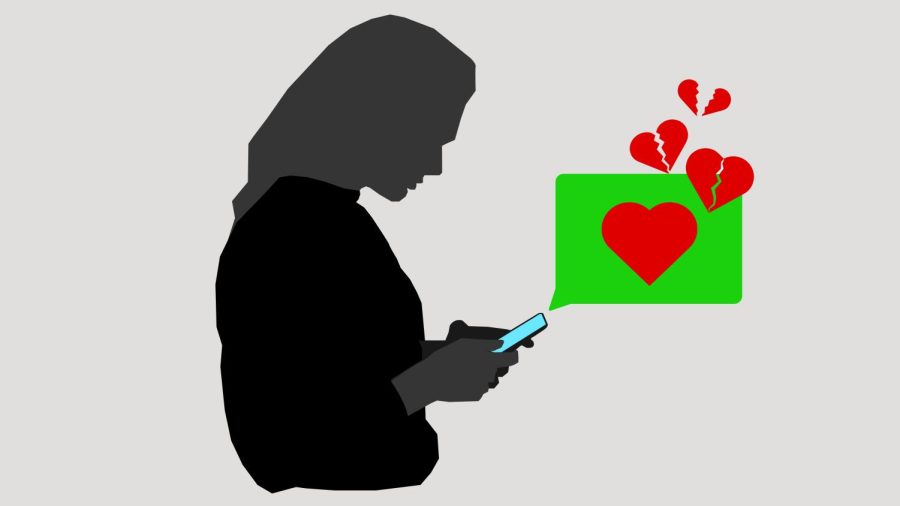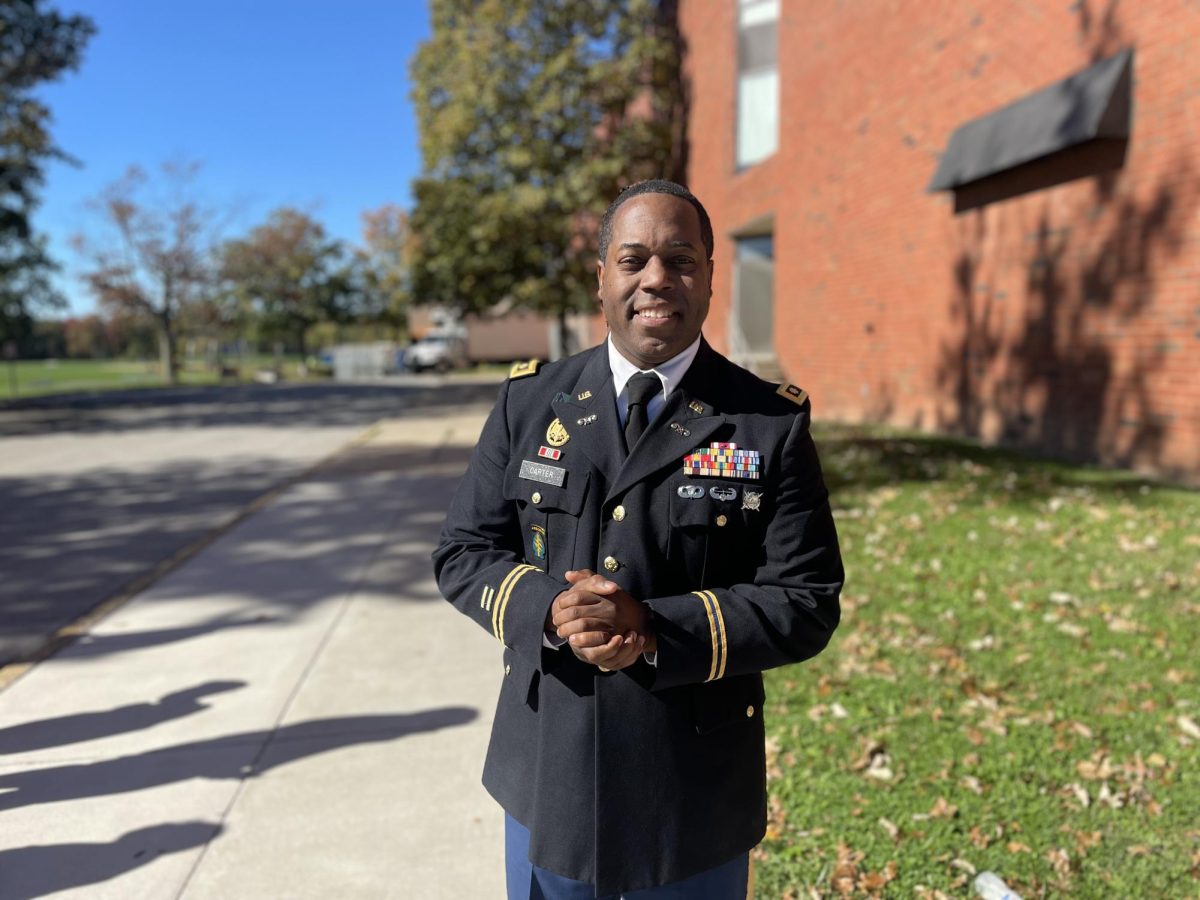Child Grooming: What to Know and Look out For
Many cases of grooming go unnoticed and are not listened to, since the media has come to accept it.
April 20, 2022
We talk always about “stranger danger” but rarely talk about the dangers that can come within our homes and those we trust. Once you hit a certain age, people seem to stop talking about it all, assuming you know how to protect yourself.
Even for us teenagers and young adults, there are still mental dangers, and the one I will be talking about is grooming. This is not the “child grooming” that you probably heard in the media that anti-LGBTQ+ activists are warning about, which states that teaching children about lgbtq+ and safe sex is grooming. It isn’t, but that doesn’t mean actual “child grooming” isn’t real.
The definition of child grooming is the action by a pedophile of preparing a child for a meeting, especially via internet chat room, with the intention of committing a sexual offense. Oftentimes grooming isn’t talked about among children, the ones who are most vulnerable.
In other words, grooming is an older person manipulating a younger person into trusting them with sexual intentions. Usually, a groomer would target a younger person because they are more naive and thus more easily controlled.
It doesn’t really help that there are several media examples that normalize this behavior, such as “Twilight” and the “Vampire Diaries,” which feature over a hundred-year-old vampires portraying teenagers and going after minors, not to mention the fact they are incredibly creepy about it.
Grooming is a serious issue that can happen to a child at any age and can seriously damage a person’s mental health, both during and after the period in which grooming took place. It’s often hard to tell whether a child is being groomed or if the relationship is actually genuine and the adult has appropriate intentions.
Groomers often take one of the following forms: a romantic relationship, an authority figure, or even a mentor. They often target those who are vulnerable, such as those with neglectful parents, those who are neurodivergent, and those with mental and/or physical disabilities.
Some signs you can look out for, mostly in teenagers, are having an older significant other, having money/new things that they will not explain, underage drinking and/or drug-taking, and spending more/less time online. They could show signs of being upset, withdrawn, or distant. They could display sexualized behavior, language, or an understanding of the sexual activity that is not common for their age. They might also spend more time away from home or go missing for long periods of time.
Some examples of grooming could be giving gifts/special attention to a child, which makes the child feel special, indebted, or entitled to an adult, thus the child will be more likely to do what they say. Making close physical contact sexual, such as inappropriate tickling, play fighting, and/or hugging. Openly and/or pretending to accidentally expose the child to nudity, sexual material, and/or sexual acts. Controlling the child through threats, force, use of authority, or the classic gaslighting, would make the child fearful to report any unwanted behavior and/or feel guilty about not doing said behavior.
Many groomers prey online, using common social media outlets that young people tend to use, such as Instagram, Tiktok, Snapchat, and Discord.
Grooming can have either long-term or short-term effects. The impact of being groomed can last for the victim’s entire life, alternating their entire way of interacting with others and bringing in relationship problems with family, friends, and partners. No matter the age, race, or gender, a victim of grooming could live with mental health issues such as anxiety, depression, post-traumatic stress, a self-harm addiction, feelings of shame and guilt, eating disorders, suicidal thoughts, and problems with drug and alcohol. They can have difficulty sleeping and struggle to concentrate or cope with school/work.
There have been several cases of famous people being groomed or doing the grooming, such as Tyga with Kylie Jenner, Elvis Presley with Priscilla Presley, Steven Tyler with Julia Holcomb, and R Kelly with Aaliyah, and several accusations of James Charles and Drake.
Many groomers will find a loophole in the law, such as forming a connection with the minor first and once they “turn of age” they make romantic and/or sexual advances. Like Leonardo DiCaprio (who is 47) and Camilla Morrone (who is 24). DiCaprio met Morrone when he was 34 and she was 12, being together (as we know of) since 2017.
Grooming is a form of sexual abuse that many people don’t pay attention to, especially if the pedophile does what DiCaprio did in order to go around the law.
It doesn’t help that grooming in the entertainment industry is so normalized. Dating a young woman at age 18 is seen as a goal for many male stars, such as Drake dating Bella Harris in 2018 when she was 18, right out of high school.
Not only individuals but even groups of people immediately go after celebrities once they hit 18 since they are able to sexualize them without fear of legal action. Emma Watson reported that on her 18th birthday there were paparazzi laid on the floor outside to take pictures under her dress.
I would say we need stricter laws, but not even that could 100% protect young people from the horrors of this twisted world. Perhaps what could help is prohibiting those over a certain age to initiate any kind of relationship with a minor without being supervised by a parent or a guardian. This should include, without saying, asking a child for their phone numbers, even if they claim it’s for tutoring, or meeting with a child outside of school and/or without someone else to supervise them.
The type of relationship children and parents should look out for specifically s a friendly kind. For example, a teacher wanting to take a student out or give said student special attention and/or gifts. It could be the neighbor always bringing a teenager food when they know their parents are not home or wanting to make “small talk” to the child. No adult should try to be “close friends” with a child, especially in secret, as there is a large gap in maturity levels.
Then there are also the groomers in the family. They are the hardest to detect, but they are also the most common. If it’s a parent’s big sibling or best friend, parents may already trust them with their child.
Whether the parents trusts them or not, they should not allow their child to be alone with them unless they know for a fact that their child trusts them and feels comfortable around them. Parents should check in regularly with their child to make sure everything is alright between them and other family members or make sure the child is comfortable around a new person the parent is dating or friends with.
Of course, suspecting a family member of grooming could be very difficult. Suspecting a family member could cause major problems. Yes, there are more obvious signs that something is happening such as sexual games (pantsing, truth or dare, stripping), walking into the restroom while the child is using it, and touching the child in a way that could be seen as sexual.
I do not have a solution for protecting youths against creepy adults, family or not, but what I can say that can protect children from grooming is educating them and their parents on the warning signs and how to tell if an older person is just being friendly or is trying to get “friendly.”
Parents should allow their children free will to speak and not feel restricted from telling their parents about certain things. If a child is voicing concern about a certain person, then the parent needs to listen and not shut the child down by saying that the person is just playing or that’s just how they are. This could cause the child to have a majorly twisted view on behavior and what is appropriate and what isn’t, causing a cycle of abuse.
At the end of the day, parents can’t read minds, so it will have to be up to the child to say something, but they need to feel safe enough to say something.



